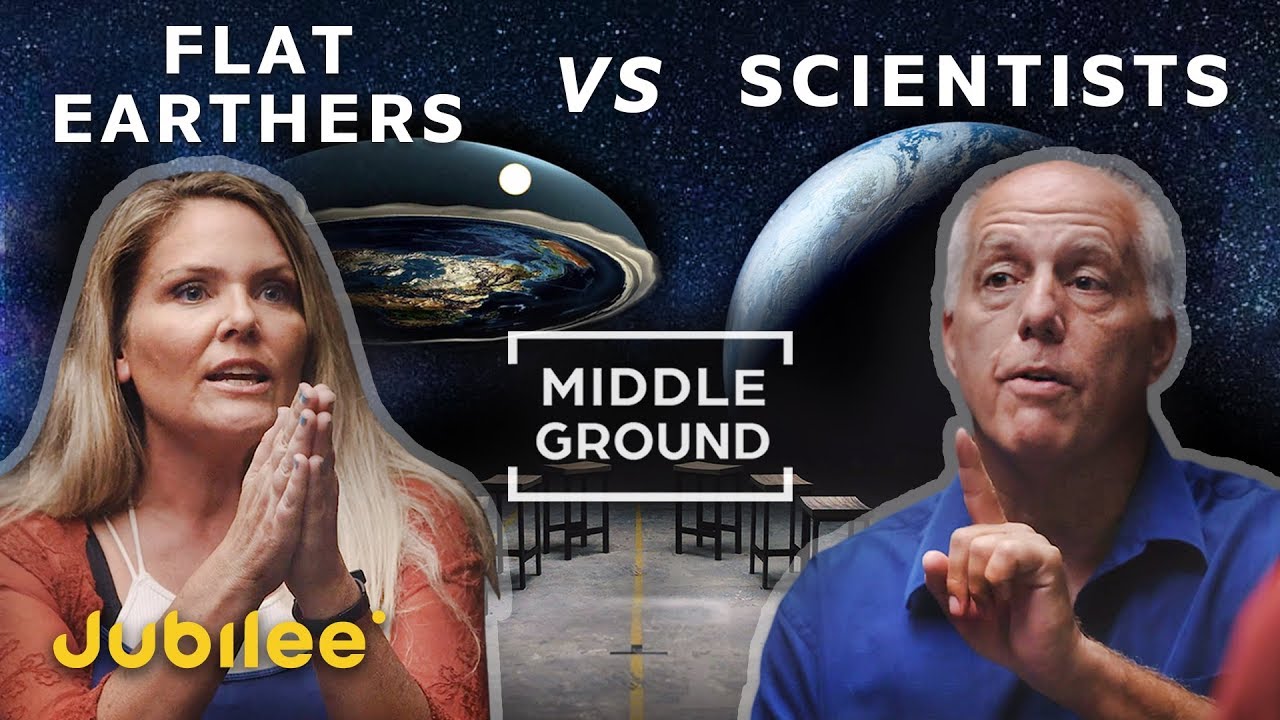Flat Earthers vs Scientists: Can We Trust Science?

Flat Earth?
Flat Earthers vs Scientists: Can We Trust Science?
What are some reasons why some people refuse to accept scientific evidence?
Flat Earthers vs Scientists: Can We Trust Science?
In recent years, a small but vocal group of people have claimed that the Earth is not a spherical shape as we have always thought, but rather, flat like a pancake. This group of people, who call themselves Flat Earthers, have gained a following online, and have even conducted experiments to prove that the Earth is flat. However, the vast majority of scientists and experts in various fields have refuted this claim, stating that it is a dangerous and misinformed belief. The question is, which side is right, and can we trust science?
To start with, it’s crucial to understand the scientific method. Science is a process that allows us to explore and understand the natural world through observation, experimentation, and testing. Scientists use evidence-based research to support their theories, and they constantly review and revise their findings based on new evidence. This process is designed to be robust, transparent and verifiable, so science has built-in mechanisms to ensure that results are accurate and trustworthy. In contrast, the Flat Earth theory is based on a belief system that is not backed up by evidence, but rather on anecdotal observations or misconceptions.
So, why do some people refuse to accept scientific evidence? One reason is the mistrust of authority figures, including scientists and government agencies. This mistrust often manifests in conspiracy theories, believing that scientists and governments are hiding the truth from the public. They argue that the idea of a spherical Earth is a part of a vast conspiracy to control people’s understanding of the world. Evidence shows that many people who support the Flat Earth theory are also suspicious of vaccines, climate change, and other accepted scientific theories.
Another reason why science is sometimes dismissed is the perception that science is not infallible, and scientists sometimes make mistakes. This is undoubtedly true, and scientists are the first to admit that experiments sometimes don’t go as planned. Despite this, science is designed to be self-correcting, and errors in research are often discovered and corrected by other scientists. However, the Flat Earth movement has shown that the support for the theory is often based on an individual’s desire to believe something, rather than objective evidence.
So, can we trust science? Science has given us tremendous benefits, from medical treatments to space travel, all based on the same scientific method. Science can and has been wrong in the past, but that’s the point – it is not infallible, and scientists themselves build in a level of self-correction. However, the Flat Earth theory is not based on evidence or verifiable research, and accepting it poses significant risks to both individuals and society. Rejecting established scientific principles and relying on untested beliefs can lead to dangerous and misguided actions.
In conclusion, science is a trustworthy tool for understanding the world around us. It is transparent, self-correcting, and has given us incredible advances that have made our lives better. However, we must be careful to distinguish between scientific evidence and misconceptions supported by anecdotal beliefs. The Flat Earth theory is not supported by facts or research and is based purely on belief. While we should always question authority and be open to challenging ideas, we must ultimately rely on objective evidence and established scientific principles to move us forward.









9 Constipation Life Hacks That Actually Work | Hack My Life #20
LIFE HACKS for EMBARRASSING MOMENTS that ACTUALLY WORK
EJ is 18. He told me he has been homeless for 11 years.
Disney’s Stunt Robots Could Change How Hollywood Makes Action Movies
8 Fast Growing Vegetables You Can Grow at Home in a Hurry